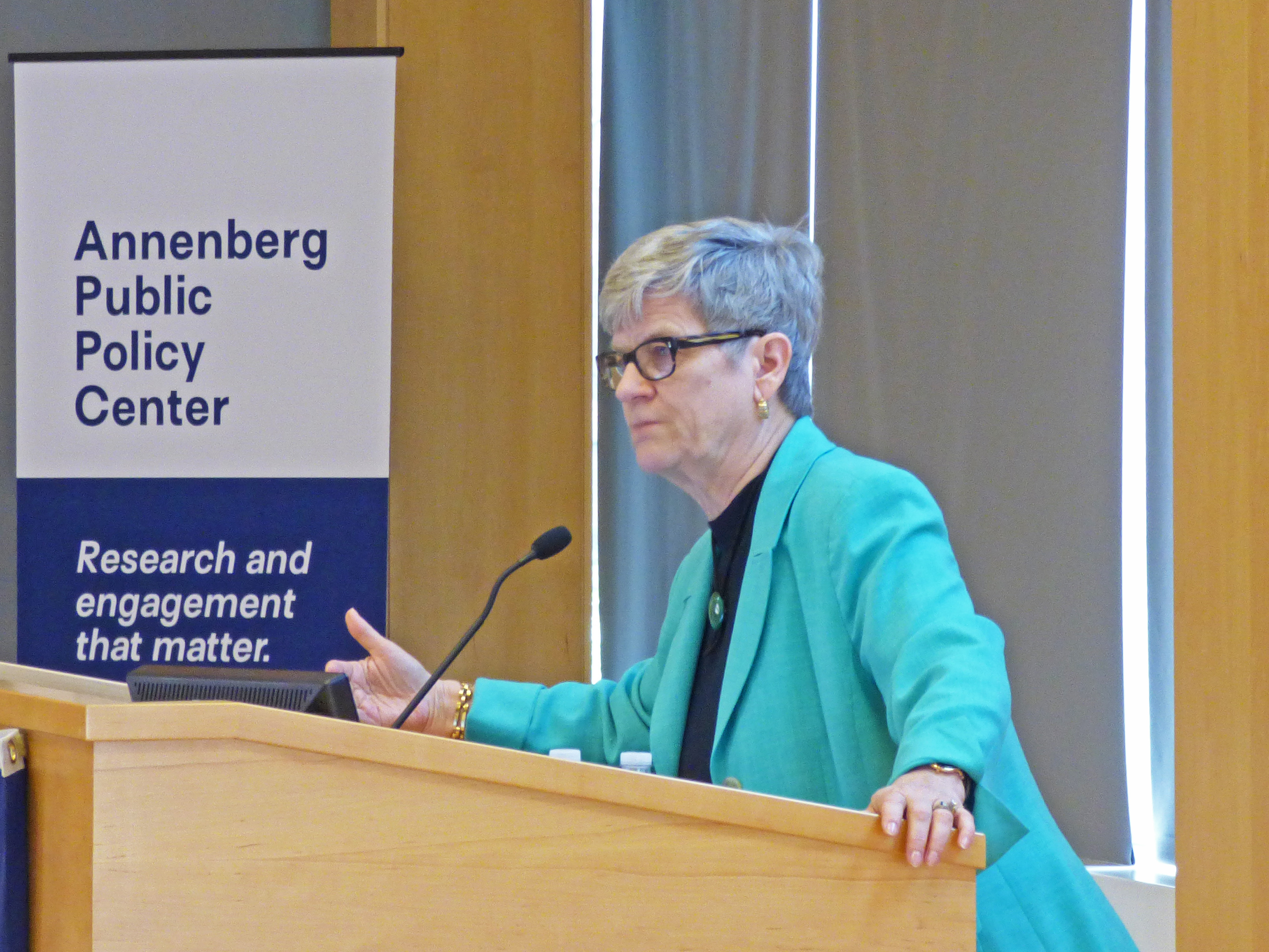Annenberg Public Policy Center director Kathleen Hall Jamieson spoke this week to a lunchtime audience of about 35 state and local policy makers gathered in Philadelphia for the 2019 Eastern Leadership Academy, held by the Council of State Governments Eastern Regional Conference. Her talk focused on science communication, including the trustworthiness of science and how to go beyond media coverage to find reliable research — and why these are important for local officials dealing with, say, a measles outbreak or the opioid crisis.

Jamieson highlighted main narratives often found in media coverage of science. The media frequently feature stories of new and exciting discoveries, though they will also devote headlines to tales of counterfeit discovery when fraud and retractions occur. Some stories argue that science has systemic problems causing it to be “broken” or “in crisis.” Recently, articles have begun to describe scientists’ efforts to seek solutions to these problems. Jamieson cited research from APPC’s Science Media Monitor project to note some of the important ideas that mainstream media coverage of science often fails to mention, such as the unanswered questions in a discovery narrative or next steps to prevent mistakes or misconduct in a counterfeit discovery narrative.
As part of her talk, Jamieson also discussed how policy-makers and others can find reliable information from scientists on topics from the opioid crisis to genetic engineering and beyond. Searching out review articles or reports from the National Academies of Science, Engineering, and Medicine — or its international equivalents — on more established topics is one way. Other methods include ensuring that an individual study is relevant to the population in question, that its authors have no conflicts of interest, and that the effect size is reasonably large. She also detailed current efforts by scientists to increase transparency and trustworthiness.

